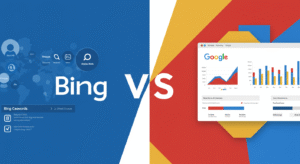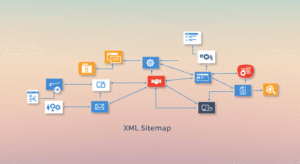When it comes to search engine optimization (SEO), one of the most crucial steps is URL indexing. No matter how high-quality your content is, if it doesn’t get indexed by Google, it’s practically invisible to your audience. In this context, it’s important to compare two popular tools: google search console vs rapid url indexer.
This guide is specially crafted for those who publish new URLs on their site or blog and want them to be indexed by Google as quickly as possible. You’ll find a complete, helpful, and trustworthy comparison that can guide you to make the best decision.
What is Google Search Console?
Google Search Console is a free tool offered by Google to help website owners monitor, maintain, and troubleshoot their site’s presence in Google Search results.
Core Features of GSC:
- Submit website and individual URLs to Google
- URL inspection tool
- Index coverage reports
- Performance analytics (CTR, impressions, clicks)
- Mobile usability testing
Pros:
- Free and Google-trusted
- Identifies crawling and indexing issues
- Provides detailed performance data
- Supports sitemap submission
Cons:
- Indexing can be slow
- Requires manual effort
- Does not guarantee fast indexing
While GSC is a reliable tool for SEO experts, it may not be ideal for those who need rapid indexing.
What is Rapid URL Indexer?
Rapid URL Indexer is a third-party SEO tool that pushes your URLs to multiple indexing sources, aiming to speed up the process of getting them indexed by search engines like Google.
Common Features:
- Bulk URL submission
- Utilizes multiple APIs
- Optimized for Google, Bing, and other search engines
- Often requires a paid plan
Pros:
- Faster indexing (sometimes within hours)
- Great for affiliate marketers and bloggers
- Allows bulk submissions
Cons:
- Usually a paid tool
- Not officially endorsed by Google
- Indexing success can vary
If you frequently publish new content and need fast indexing, Rapid URL Indexer can be a valuable tool.
Role of Indexing Tools in Search Engine Optimization
Both search engine optimization rapid URL indexer and Google Search Console play vital roles in increasing your organic visibility. One of SEO’s core goals is ensuring Google is aware of your page and can crawl and index it. Without indexing, ranking is impossible.
Use Cases for Indexing Tools:
- Submit new URLs
- Push fresh content to Google
- Identify and fix technical issues
- Improve crawling speed
No SEO strategy is complete without the right indexing tools. For those in competitive niches or who need fast results, smart use of these tools is essential.
Google Search Console vs Rapid URL Indexer: A Head-to-Head Comparison
| Feature | Google Search Console | Rapid URL Indexer |
| Indexing Speed | Slow to Moderate | Fast (Sometimes instant) |
| Cost | Free | Mostly Paid |
| Reliability | Very High | Medium to High |
| API Access | Yes | Depends on the tool |
| Bulk URL Submission | Limited | Supported |
| Official Support | Google Support | Third-party |
| SEO Utility | Comprehensive performance data | Quick indexing focus |
This comparison clearly shows that both tools have unique strengths. Your choice depends on your specific needs.
When to Use Each Tool
Use Google Search Console When:
- You need long-term SEO monitoring
- You want reliable data from Google
- You need to track crawling errors and performance
Use Rapid URL Indexer When:
- You want faster indexing of new blog posts
- You have many URLs and limited time
- You publish time-sensitive or affiliate content
Using both tools together can be a powerful strategy.
Can You Use Both Tools Together?
Yes! Smart SEO professionals use both tools in combination.
Example Strategy:
- Submit sitemaps and URLs using GSC
- Push the same URLs using Rapid URL Indexer for fast indexing
- Monitor performance and crawl stats via GSC
This way, you get the speed of Rapid Indexer and the accuracy of GSC data.
Real-Life Use Case Example
Imagine you’re an affiliate marketer publishing a product review for a limited-time deal. If you rely only on GSC, your content might be indexed in 2-3 days—by then, the deal could be over.
With Rapid URL Indexer, your content might be indexed within hours, helping you get timely traffic. You can then use GSC to monitor how well the content is performing.
Balanced Approach for Smart Indexing
Google Search Console: is a must-have tool for every SEO professional. It provides essential insights and keeps your site healthy.
Rapid URL Indexer: is a great tool for fast results, especially in time-sensitive cases. It’s ideal for marketers and publishers who need rapid visibility.
Using both tools together gives you the best of both worlds.
FAQs
Yes, Rapid URL Indexer is safe if you choose a reputable provider. Many SEOs use this tool to speed up indexing without violating search engine guidelines. Just ensure it complements your overall SEO strategy.
Absolutely, if you run a blog or business that relies on quick indexing and search engine optimization. The cost is often justified by the faster visibility and increased traffic potential.
Not always. While GSC is a reliable tool for submitting URLs, it doesn’t guarantee fast indexing. That’s where tools like Rapid URL Indexer help bridge the gap.
Faster indexing means your content appears in search results sooner. When combined with solid on-page SEO, this early visibility can lead to quicker rankings, especially for trending or time-sensitive content.
Site-level reporting in Google Search Console treats your entire website as a single entity, aggregating data across all pages. URL-level reporting tracks each individual page separately, giving insights specific to that particular URL.




